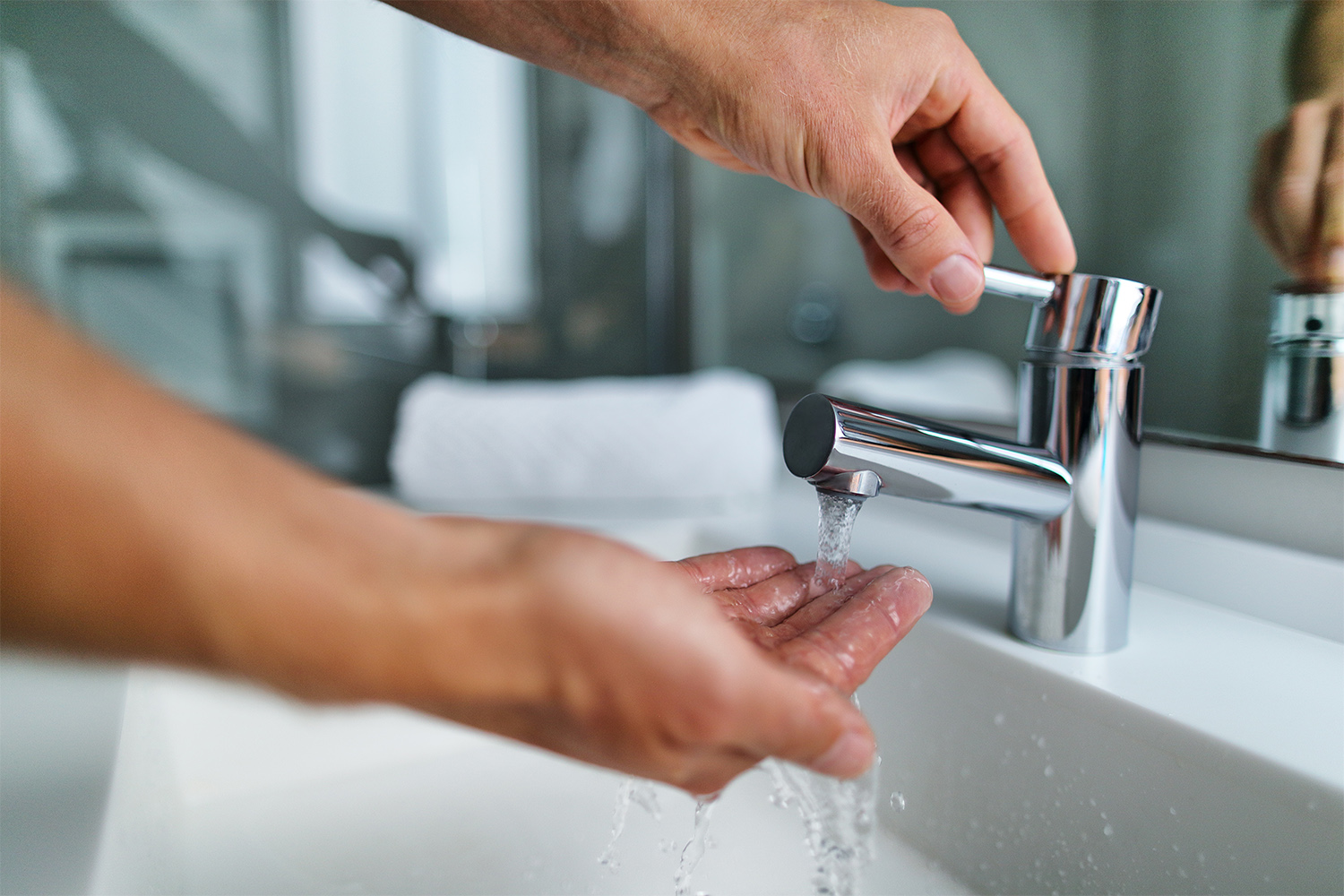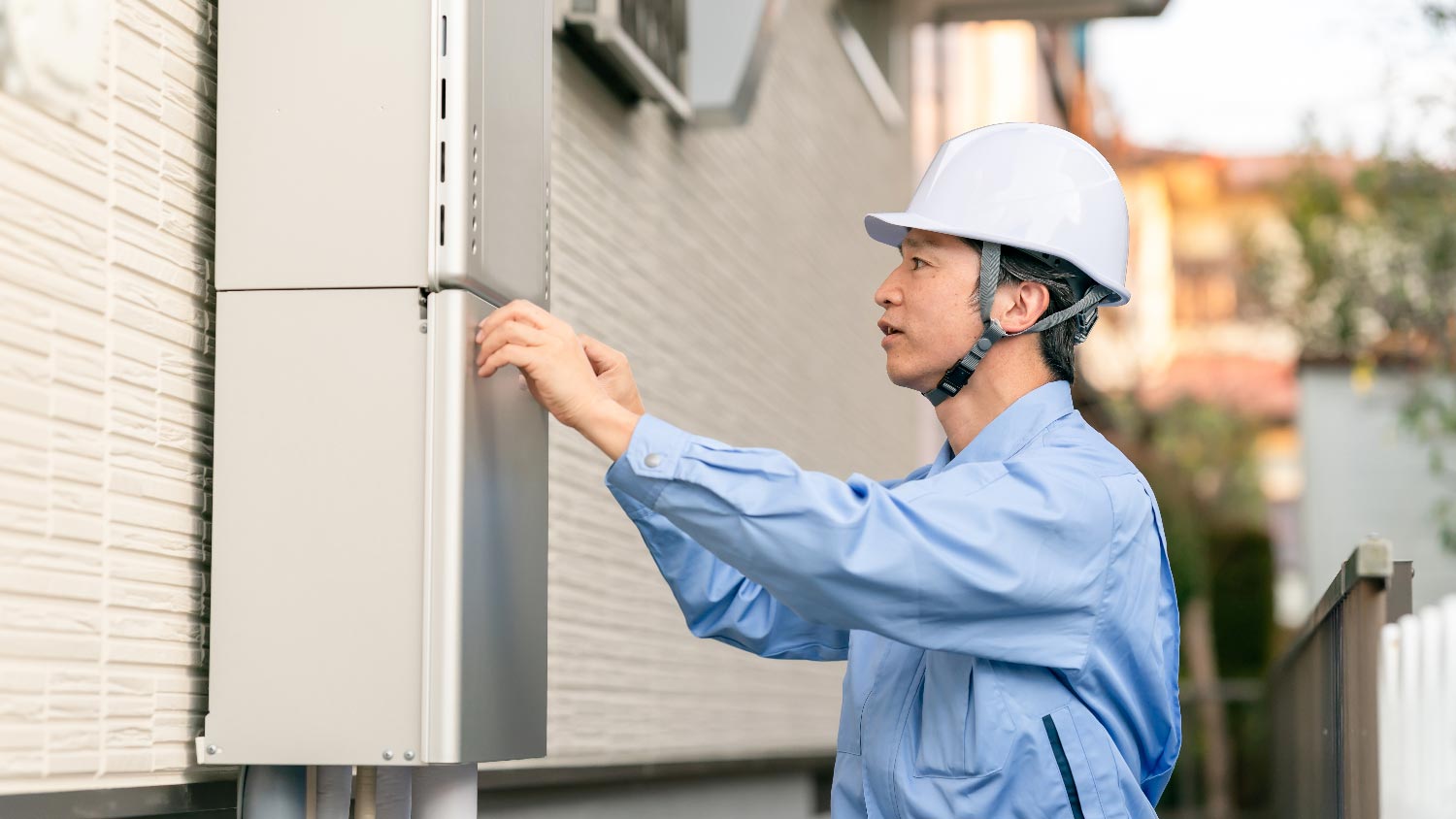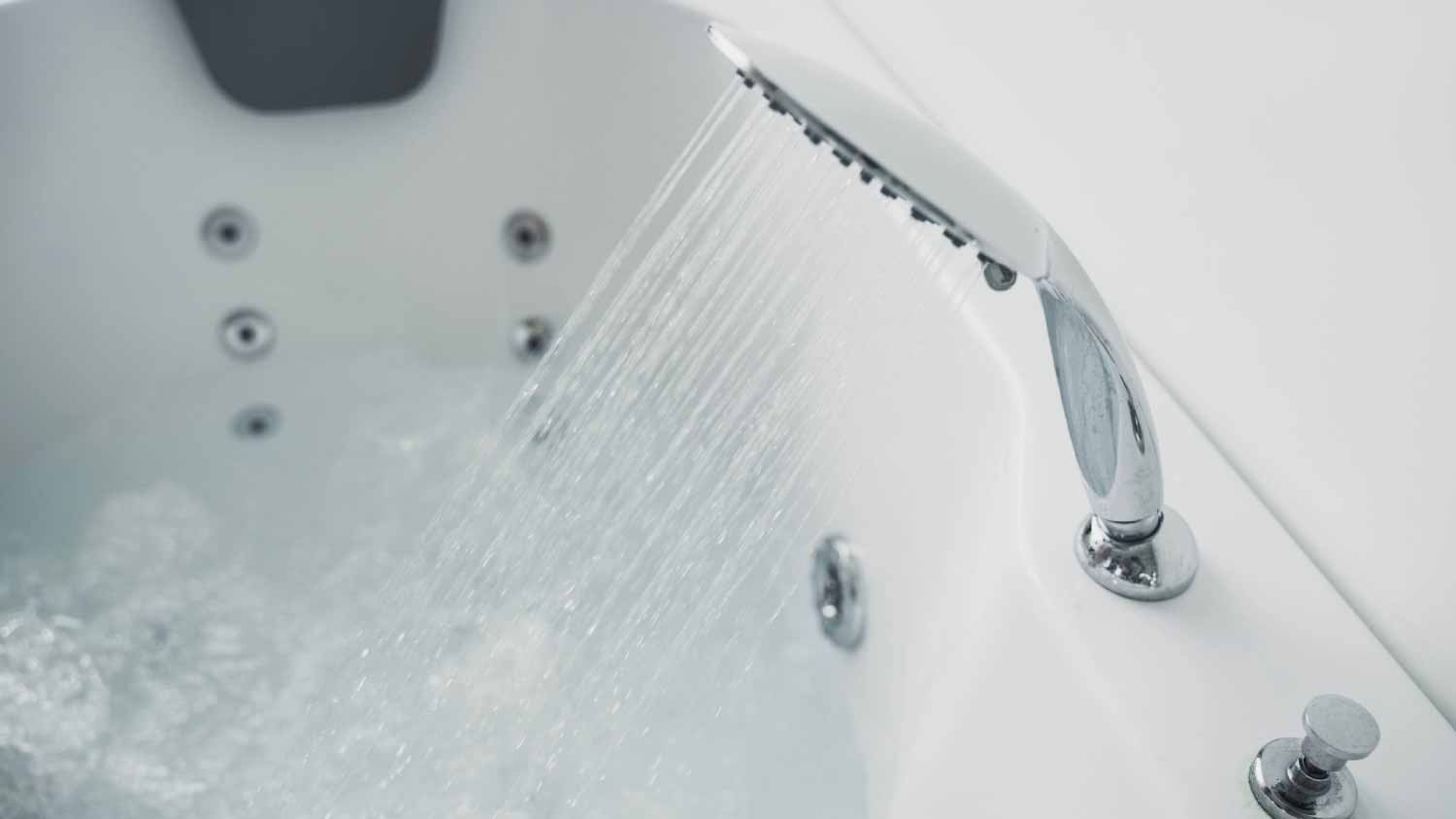Everything You Need To Know About Solar Water Heaters
A solar water heater can help you save money and reduce your carbon footprint


Solar water heaters help you harness the sun's energy to reduce how much money you spend on heating water and help to reduce your home's carbon footprint. These systems supplement the existing water heating system in your home.
Below, we break down what a solar water heater is and how it works to see if it's right for your home.
What Is a Solar Water Heater?
Solar hot water systems are, for the most part, supplementary water heating systems that work alongside existing conventional models. This system is often paired with a tankless or on-demand hot water system so that if you place too much demand on the solar system, the tankless one can take over and still provide hot water.
It's also a viable solution for off-gridders looking to heat water without electricity or gas. However, without a powered backup, your hot water supply is limited by how much sunlight the system can capture.
Using the sun's energy reduces the cost of heating water conventionally. And if you think about how much hot water you use daily —for washing up, cleaning messy kids, doing laundry, taking a shower, and so many other things—this can work out to a significant saving each year.
Then there's the environmental impact. With the average home and a standard electric water heater, hot water usage is responsible for around 3 tons of carbon emissions every year. That's a huge figure, given that a car’s carbon emissions are only about 4.6 tons per year. So installing a solar water heater could reduce your household's carbon footprint by at least 2 tons per year. That's a significant planet-saving reduction.
How Does a Solar Water Heater System Work?
As the name implies, a solar hot water system works by using the sun's thermal energy to heat water. Each system has a collector, a storage tank, a heat exchanger, and a controller system. And, of course, you’ll also have a gas or electric backup water heater. Most units come with a backup system, although those wanting to live entirely off-grid can find solar-only models.
Collectors
The collectors are the solar panels that (most commonly) go on your roof. Unlike regular photovoltaic solar panels, these collect heat. As sunlight passes through the glass outer layer, it hits an absorber plate. This specially coated panel captures the sunlight and transforms it into heat energy.
From there, the generated heat travels to the transfer fluid (usually antifreeze, sometimes potable water) housed in small pipes joined to the absorber plate. How many collectors you need depends on how much direct sunlight the installation site gets and the demand for hot water in your home.
Types of Solar Collectors for Water Heating Systems
Collectors are available in different sizes and types, and the one you choose will vary based on cost, how much sun your installation site gets, and your climate.
Flat Plate Collectors
Flat plate collectors are just what the name suggests: flat solar collector plates. They also have multiple small, parallel copper pipes connecting to the inlet and outlet pipes. Generally, each flat plate can heat 40 gallons of water, which is the approximate equivalent of one-quarter of the hot water needs of a family of four. Flat plate collectors are the cheapest option; however, they are also the least efficient and, in areas with limited bright sunlight, may not be the best choice.
Evacuated Tube Collectors
Evacuated tube collectors are the more costly, but more efficient, choice in all climates. These collectors work a bit like an insulated water bottle. The inner glass or metal tube contains the water (or antifreeze in cold climates and closed-loop systems), and the outer tube is made of glass. The space between the two tubes is a vacuum, significantly reducing heat or energy loss.
Batch Collectors
Batch collectors are the least common. They store and heat the water in their tanks until you turn on a tap or shower to draw the water out. If household demand is pretty low, the water just stays in the tank so that it can get scaldingly hot. Therefore, these systems require a tempering valve that delivers cold water to reduce the temperature of the hot water before it reaches the faucet.
However, these collectors are not compatible with closed-loop systems, as they can only heat the water directly, so they're not the best choice for cold climates.
Heat Exchanger and Storage Tank
The heat exchanger is a series of pipes that carry the hot liquid to the storage tank. If you're using a closed-loop system, the heat exchanger carries heated antifreeze to the water tank, where it passes its heat into the water before returning to the collector to capture more of the sun's heat
Controller
The majority of solar water systems use a controller to manage the temperature of water in the tank. Higher-end controller systems prevent the water from getting too hot and stop cold water from circulating when the heat exchanger doesn't have enough warmth to heat the water properly.
Backup System
The backup system is your electric or gas-powered water heating system that kicks in when your household demand for water exceeds the capacity of the solar system or when the weather is cloudy and there just isn't enough sun to heat the water.

Types of Solar Water Circulation Systems
There are several different solar water circulation systems, and which one you choose depends on your climate and budget.
Direct Solar Hot Water
With a direct system, the water gets heat directly from the sun; there is no transfer fluid. Instead, the water heats up directly then moves to a storage tank or is taken into the tankless water system. Direct solar systems are the cheapest but require significant protection and insulation in areas with freezing temperatures.
Indirect Solar Hot Water Systems
Indirect solar hot water systems are closed-loop systems that make use of heat transfer fluid. An antifreeze-type fluid runs through a heat exchange pipe system. Thermal energy from the sun passes into the transfer fluid, which travels down the pipe circuit, into a water tank. There, it passes the heat out through the pipes and into the water before it returns back to the collector unit to gather more thermal energy.
These are good options in cold climates as they're more efficient and less prone to heat loss. Plus, the pipes can't freeze. However, these units are more costly than direct ones.
Does a Solar Water Heater Work When It's Cloudy?
Yes, a solar water heater does work when it's cloudy. However, it won't be as efficient and won't generate as much thermal energy as it does during bright sunny weather. Therefore, in overcast conditions, you might use more conventional energy as your backup system kicks in to meet the demand for hot water.
How Much Does a Solar Water System Cost?
On average, a solar water heater costs between $2,000 and $5,000. There are many variables, including the type of system you choose, the type of collector you opt for, and how many units you need. This is a big project, so not one you should undertake yourself, even if you're an experienced DIYer. It's a much better idea to let a local water heater installer do the job for you.















